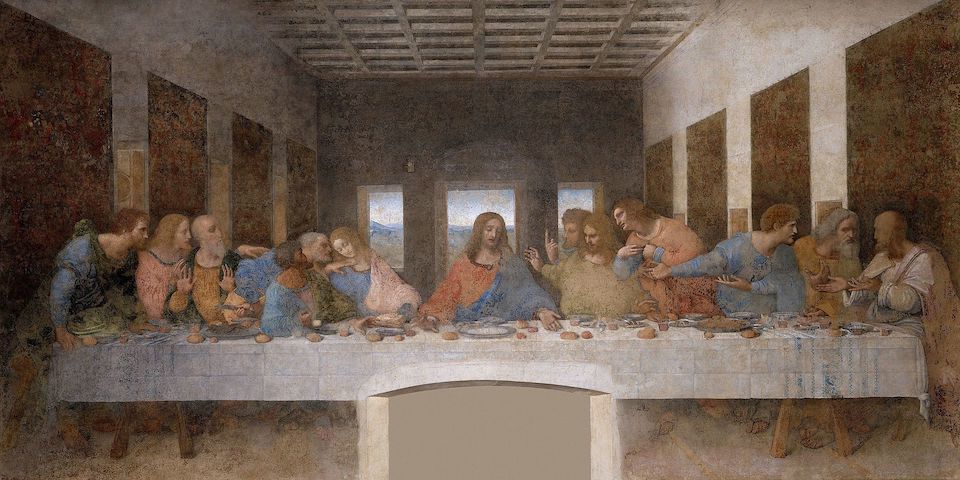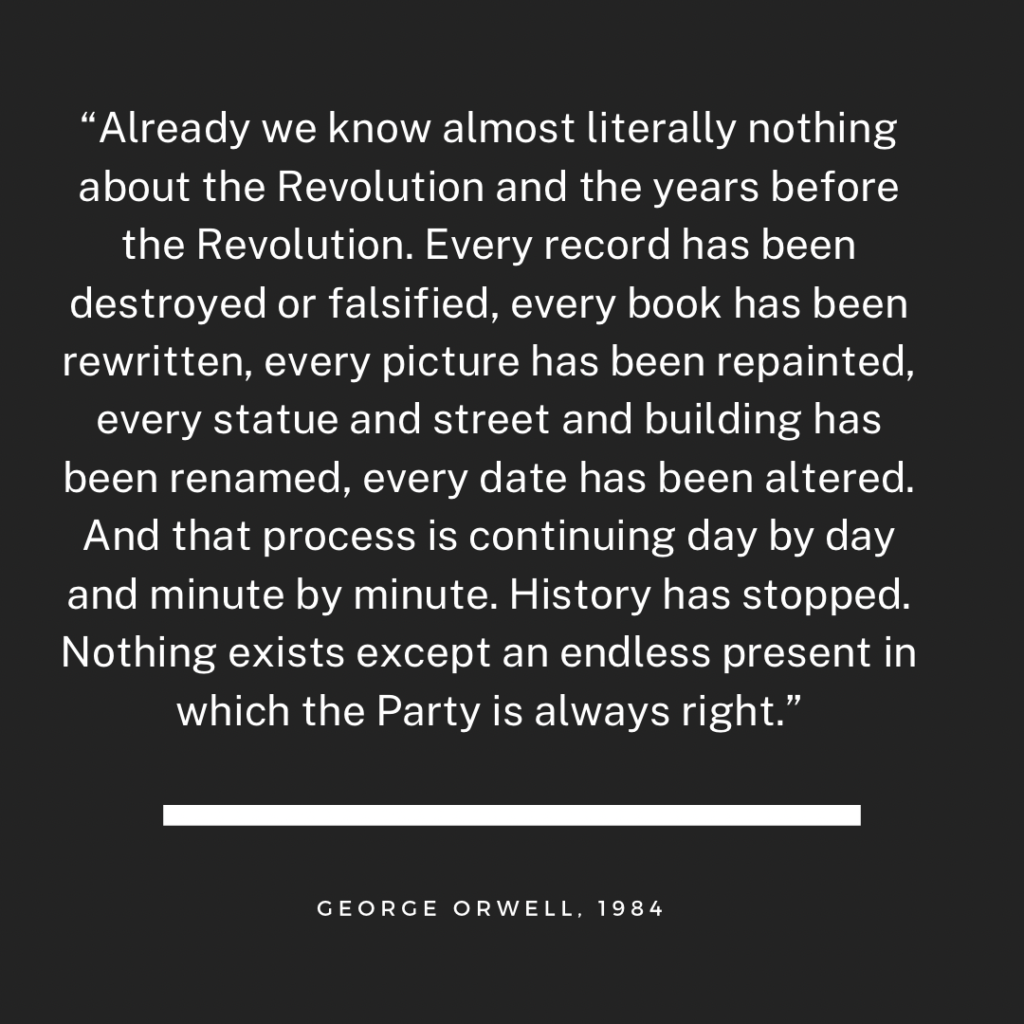Last month, the Paris 2024 Olympics’ blasphemous opening ceremony mocked Leonardo da Vinci’s Last Supper. “The segment on July 26 copied the biblical scene of Jesus Christ and the 12 apostles sharing the last meal before his crucifixion, but it included drag queens, a transgender individual, and a nude singer,” The Epoch Times reported.
Initially, the Paris Olympics claimed the ceremony was based on Greek mythology—particularly the Feast of Dionysus—not The Last Supper. A simple misunderstanding had stirred a strong response, organizers said on X. The next day, an Olympics’ spokesperson sent a statement to The New York Post, saying, “Thomas Jolly took inspiration from Leonardo da Vinci’s famous painting to create the setting.” Jolly was the ceremony’s creative director.
A framed replica of Leonardo’s original hangs in my home. Along with billions of other followers of Christ, I laud his stunning portrayal of a pivotal passage in Christian history. We recognize and worship Christ as the Son of God, Savior, Messiah.
We hold not just the art, but the underlying event, sacred. We celebrate it regularly in our church services by taking communion: bread represents Christ’s body, and wine, his blood, sacrificed for us when he died on the cross.
The Olympic ceremony was more than a mockery of Leonardo’s fine art. It scorned billions of us striving to live by Christ’s example, Christian history, and most importantly, Jesus Christ himself. Those who engineered the opening disrespect Jesus because they don’t understand who he is.
Who is Jesus? A recent sermon by Alistair Begg, which centered on Jesus’s words in Matthew 11:28-30, provides a glimpse:
“Come to me, all you who are weary and burdened, and I will give you rest. 29 Take my yoke upon you and learn from me, for I am gentle and humble in heart, and you will find rest for your souls. 30 For my yoke is easy and my burden is light.”
Begg, senior pastor of Parkside Church in Chagrin Falls, Ohio, said that this straightforward call is “not to a philosophy, it’s not to a program, it’s not to a religious expression. It’s just to a person.” The point isn’t to hear Jesus and go to church or clean up our act, although they’re worthy efforts.
“I heard the voice of Jesus say, ‘Come unto me and rest,’ and I did. I heard the voice of Jesus say, ‘I am this dark world’s light,’ and I stepped out of my darkness and into his light. I heard him say, ‘I am the living water,’ and I drank of it. That is the testimony of genuine, believing Christianity. And that is the call that sounds out from Jesus in this invitation,” Begg explained.
Wired to be self-reliant and self-assertive, Begg said, we resist the invitation. We manage well on our own. Likewise, we might hold back due to a lack of belief or clarity.
To bring clarity to Jesus’s character, Begg explored his actions.
“He provides rest to the weary and to the burdened. He delivers men and women from futile attempts to please God by our own endeavors. He sets men and women free from the rotten tyranny of trying somehow or another to make sense of our existence by bowing before substitute Gods,” Begg said. Jesus passed his time with the people who needed his message, with tax collectors and sinners. “He wasn’t big on religious clubs.”
Our achievements, contributions, and knowledge furnish us with access to clubs and memberships. When Jesus says we don’t need any of that to enter into a relationship with him, we’re offended. The notion is antithetical to us. Answering a simple invitation proves difficult. Alas, the only thing that drives us to acknowledge our need for a savior is being confronted by our own sin, according to Begg.
Ultimately, Begg examined what Jesus was “really like.” At his core, Christ is “the teacher par excellence,” gentle and lowly. “He is available, accessible, reachable, understandable. He invites us to learn from him in light of what he’s actually like,” Begg said. Jesus is patient with students slow to understand, and tolerant of those who stumble.
Though part of the triune God and able to tap into all the supernatural power that implies, he was humble during his time on earth, serving those around him. He washed his disciples’ feet, including those of Judas, who betrayed him.
“You should not be at all ashamed about telling your friends, and your neighbors, and your children, about Jesus. He is altogether lovely. He is the fairest of 10,000. He is the balm for the sadnesses of the human heart. He is the one who answers the peculiar longings that people can’t even articulate in themselves,” Begg said.
Given who Jesus is, what he does, and what he’s really like—those who mock him appear as fools.
Erasing History
Author and talk-radio host Dennis Prager aptly pointed to the Olympics’ opening as a mockery of the foundations of Western Civilization. The West was built on Judeo-Christian history and values—on the Torah and the Bible, on classical literature, art, and music. Progressives endeavor to erase that history. They tear down statues, redefine the meaning behind great works of art, and remove classical literature from K-12 schools and universities.
In his prescient book, 1984, George Orwell wrote about a similar erasure:
Sounds familiar, doesn’t it?
The Olympic interpretation of The Last Supper had nothing to do with the Olympic Games. It had everything to do with excluding followers of Christ—a thinly veiled attempt to marginalize and label us. It pushed gender ideology on anyone watching, including children, and shifted the focus from sports to sex. So much for the family friendly Olympics.
Following a worldwide outcry from Christians, Olympic organizers apologized. Paris 2024 representative Anne Descamps said the ceremony’s goal was “to celebrate community tolerance,” and, “We believe this ambition was achieved. If people have taken any offense, we are really sorry.”
That wasn’t much of an apology.
She may as well have said, “We did what we wanted to do, and we’re pleased. If Christians are upset, too bad.” Though shameful, their inability to acknowledge their mistake isn’t surprising. We live in the age of the lie, where down is up, wrong is right, and evil is good. Fail to fall in line with such progressive doctrine, and they’ll do their best to destroy you, your livelihood, and your good name.
Author and talk-radio host Eric Metaxas said the Olympic ceremony exposed demonic forces, which are always at work but often strategically hidden. That exposure is a good thing, according to Metaxas: It shows how desperate the evil forces are growing. “There is real evil now, and people are being pushed to choose—to say, ‘I’m going to choose God,’ or, ‘I’m going to sit back and let this evil happen,” Metaxas said in an interview with Newsmax host David Harris, Jr.
Rising generations need us to make that choice. We must speak the truth. In doing so, we preserve the great art, literature, and music that frame history. The work of Leonardo, Michelangelo, Ghirlandaio, Shakespeare, Socrates, Augustine, Beethoven, Mozart, Bach, and many others must be shared, taught, and cherished. It is a gateway to the good, the true, and the beautiful. There is no substitute, nor can it be twisted for ideological gain.

Leonardo da Vinci’s Last Supper depicts Jesus Christ and the apostles in Jerusalem on the evening of Holy Thursday. Fifth from the left is Judas Iscariot, shown leaning forward, his right hand gripping a bag of money. He uses his left hand to take a piece of bread, the gesture Christ anticipated would signal his betrayer. 1495-97, Milan, Refectory of the Convent of Santa Maria delle Gracie Caption credit: Gospel Figures in Art, 2003, Getty Publications

Leave a Reply